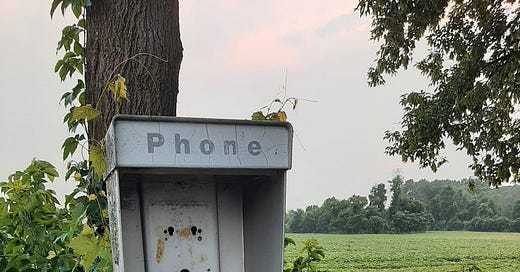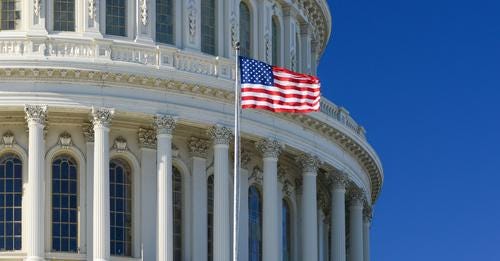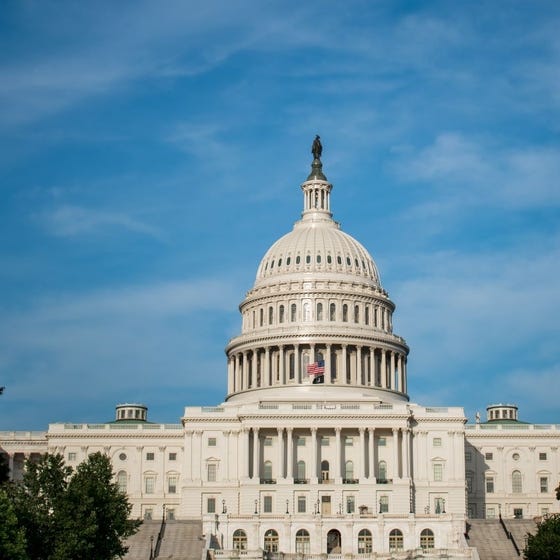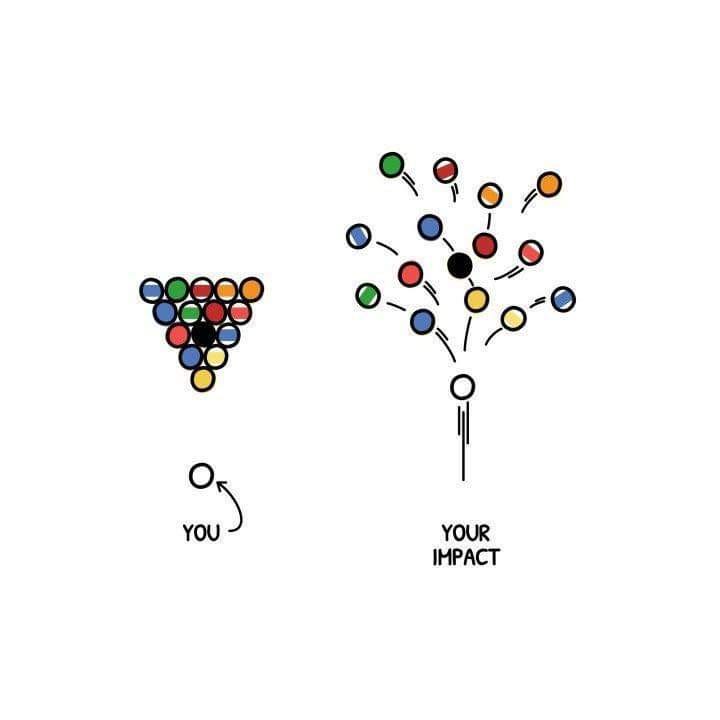One phone call—what difference does it make? It’s just one drop in the sea of awfulness. But the force of our outrage can turn into a tidal wave.
We saw this when the flood of calls to Congress led directly to the White House pulling back on the funding freeze. And now there’s a trend of Democrats getting louder, speaking up in confirmation hearings and on social media. A lot of the folks in Washington are running scared right now. If they feel there’s a powerful wind of public support at their back, they’re much more likely to grow a spine.
So let’s let them know, loud and clear, exactly what we think.
There’s a great website, 5calls.org, that makes it so much easier. You can even download it as an app. Just enter your zipcode and bam! they list each of your representatives, phone numbers for DC and state offices, addresses, everything. Then they list the burning issues of the day, and there’s plenty to choose from. Pick an issue and they give you concise background and a suggested script.
They claim that “Calling your congressperson is the most effective way to influence policy.” They make an interesting point: calling is fast and immediate. Letters and even e-mails have to be read and sorted and processes. Congressional staffers tally phone calls right away.
“Once your congressperson forms a public stance on an issue, it’s hard for them to walk it back. The earlier they hear your opinion, the more likely it is you’ll make an impact.
“Calling is by far the most effective way to ensure that your representative hears you before they take a public stance.”
If you support their stance…
You need to let your congressperson know! When they talk to colleagues, they use call tallies and personal stories from constituents to support their positions.
If you oppose or don’t know their stance…
Calling is the easiest way to sway them! Your congressperson gets regular call tally reports, letting them know how strongly their constituents feel about an issue.”
Here’s some wisdom from an anonymous congressional staffer: Calls are what all the congresspeople pay attention to. Every single day, the Senior Staff and the Senator get a report of the 3 most-called-about topics for that day in DC and local offices.
Republican callers generally outnumber Democrat callers 4-1, and when it's a particular issue that single-issue-voters pay attention to (like gun control, or planned parenthood funding, etc...), it's often closer to 11-1, and that's recently pushed Republican congressmen on the fence to vote with the Republicans. In the last 8 years, Republicans have called, and Democrats haven't.”
Unfortunately, a good way to measure the effectiveness of your contact with those at the levers of power is how uncomfortable it makes you feel. The more of a pain in the ass for you it is, the more effective it is. The more direct a communication, the more effective it is.
So most effective is a personal visit. Then a phone call. Then a letter. Then e-mail. Then the fill-in-the-blanks website contact form. Lastly, signing a petition.
Phone calls are hard for some of us. I tend to be phone-phobic, but I’m trying to get over it. I mean, it’s not like I have to talk to the Senator in person. When you make the call, let’s face it, the Big Cheese is not going to pick up the phone. You’ll get an answering machine with a long-drawn-out message about how “your call is very important to us” because they’re hoping you’ll get bored and go away. Hang on. When you leave your voicemail, give your full street address to ensure your call is tallied.
If it’s not an answering machine, it will be the lowest of the low-level staffers who drew the short straw and got stuck with phone duty. They will not give you the slightest bit of information about what the congressperson is doing about this issue. They don’t know. They don’t care that you’re outraged. They don’t care that you’re appalled.
What they do care about is where you’re from. If you’re not in their electoral district, you’re chopped liver. But if you’re a voter that could potentially vote for them, that’s gold. So right up front, give your zip code. Make your point quickly. “I support…I oppose…” If you have a particular bill in mind, give the number: “HR 234.”
The underpaid intern on the other end of the line will thank you for calling with insincerity and hang up with relief. (Don’t yell at them, by the way, it won’t change anything.) But then they’ll do the crucially important thing: They’ll log your call in on a spreadsheet. And that’s what the Congressperson will keep a wary eye on.
The more focused the point, the better. Not “I’m outraged by Trump’s actions” but “I’m outraged by the firing of the J6 prosecutors.” If you’re outraged about ten things (and who isn’t?) make ten separate calls.
But don’t stop at your congressional reps. Bug the local folks, too. School board, town council, state senator. Then the effect of your communication is exponentially greater. Sometimes just a half-a-dozen people weighing in on a local issue can tip the scales. One or two people showing up to a school board meeting or a town council hearing can have an amazing impact.
I worked in state government for many years, and I saw again and again how even a single letter or phone call could stir up interest in an issue. Like a tiny gadfly that can get a huge water buffalo stampeding, one cranky person can really make a difference.
We often forget the simple truth: every single elected official needs us voters in order to keep their jobs. They need us.
One call, one letter won’t change the world. But your action can be the catalyst for many others. Use the power of social media, letters to the editor, and just talking to friends, kids, grandchildren, to spread the word. Brag about how you’ve raised your voice on an issue that’s dear to your heart. Maybe they’ll get cranky, too
Dear Friends,
Are you worried about the state of the world and wondering what to do about it? I hope you’ll continue to check out The Optimistic Activist.
Every now and then I post some ideas for doing something. How to get out the vote, spread the word, and support progressive candidates. Ideas for simple but effective activism. As easy, as practical, as do-able as I can make them.
Together, I think, we can really make a difference.
“Optimism is a strategy for making a better future.”
--Noam Chomsky








